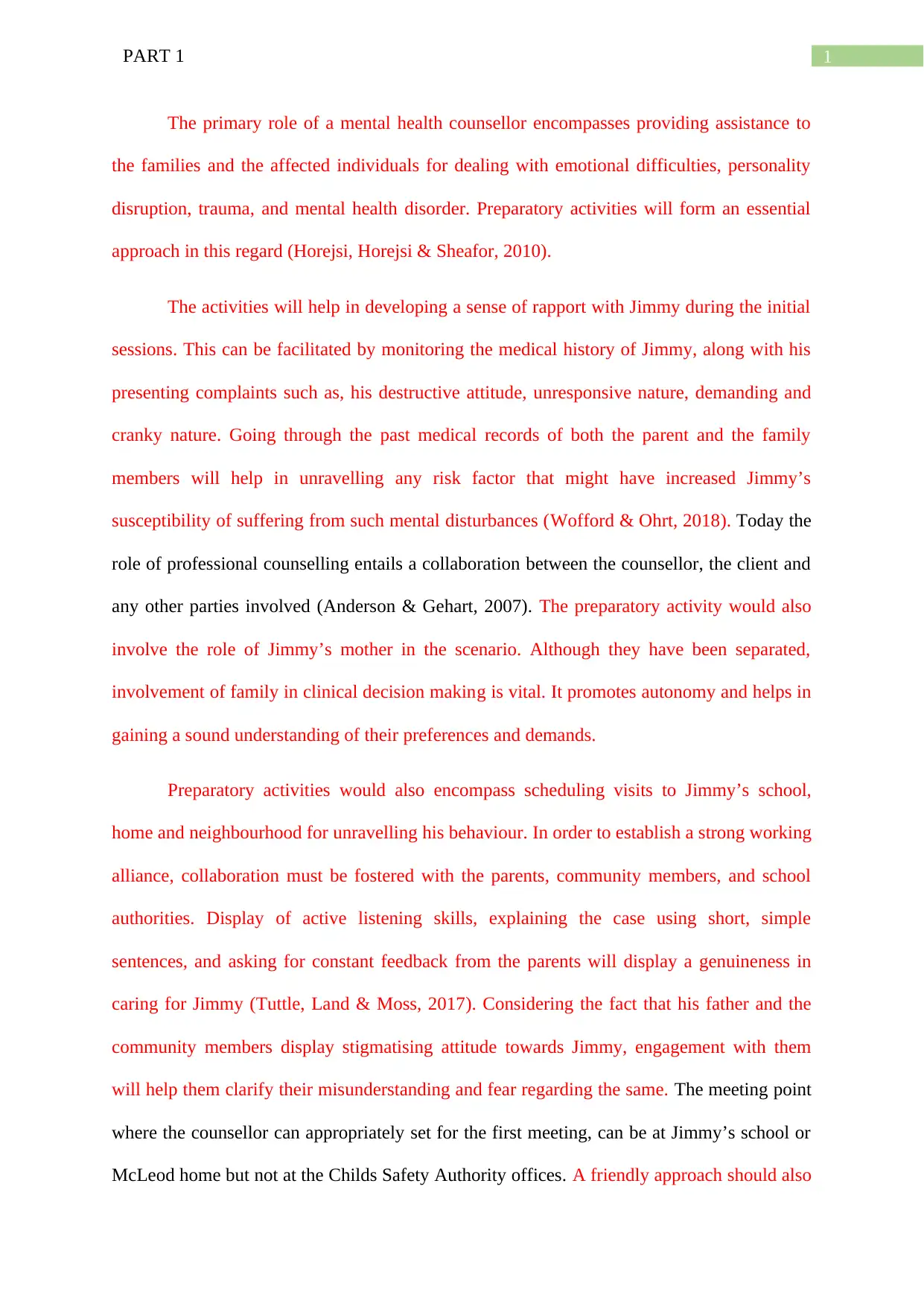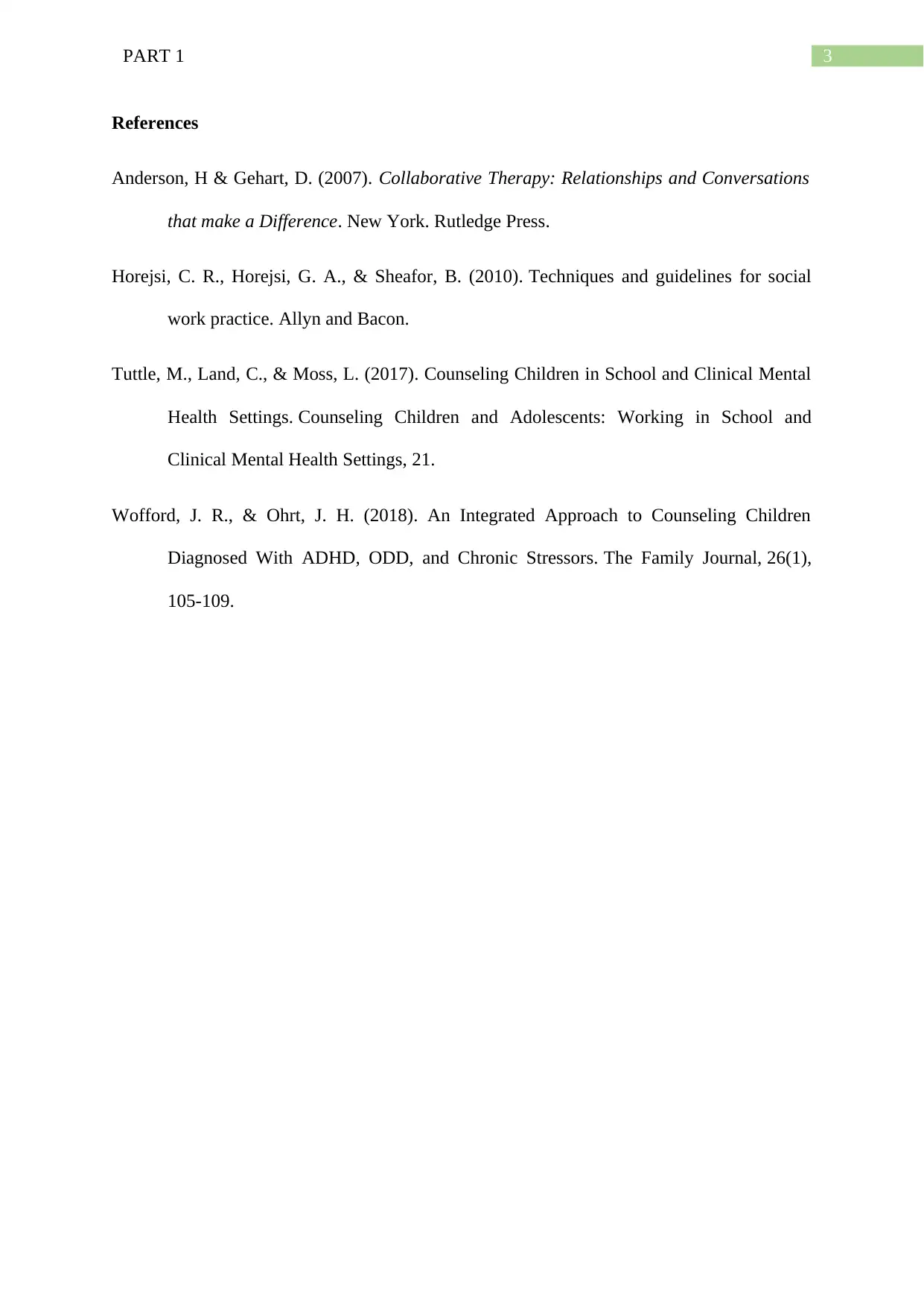COUCOP801A: Counselling the McLeod Family - Initial Assessment Plan
VerifiedAdded on 2023/06/03
|4
|611
|255
Report
AI Summary
This report outlines the preparatory activities a mental health counselor should undertake before engaging with the McLeod family, focusing on Jimmy's destructive behavior and potential mental health issues. It emphasizes building rapport, reviewing medical history, and collaborating with family members, school authorities, and community members to understand Jimmy's environment. The report stresses the importance of active listening, clear communication, and maintaining confidentiality to establish a strong working alliance. The ultimate goal is to determine if the case is suitable for intake after thorough engagement and assessment. Desklib provides students with access to similar past papers and solved assignments.
1 out of 4







![[object Object]](/_next/static/media/star-bottom.7253800d.svg)